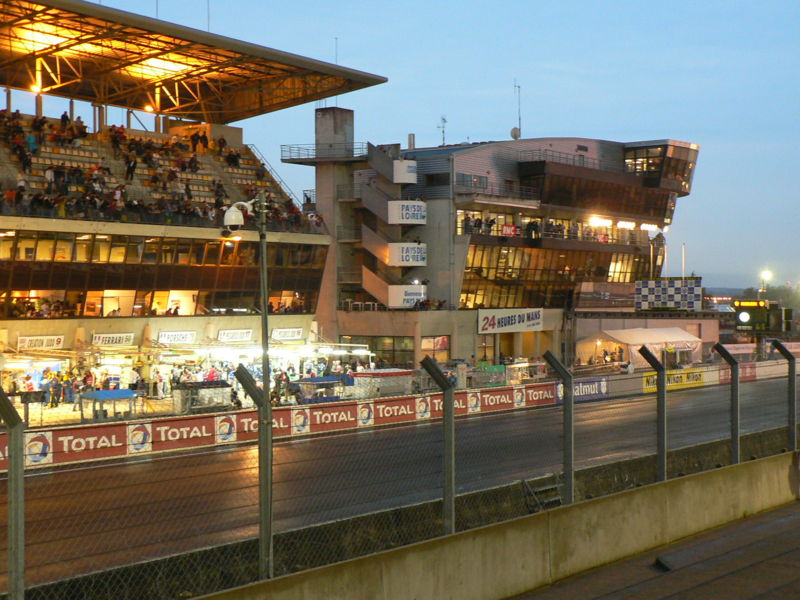TM24H(France) on 20m BPSK31!!!
|  |
TM24H  France France
ARAS Sarthe
PO BOX 22088
72002 LE MANS cedex 1
France
[+] Mailing label
|
Lookups: 19913
|
| Email: Use mouse to view.. QSL: VIA F6KFI BURO OR DIRECT |
20130618 1235UTC 14072kHz TM24H
Date : 18/Jun/2013 1235UTC
Freq : 14072kHz BPSK31
Rig : SDR(PI4THT)
ANT : Mini-Whip(PAØRDT)
PC recording
| Lookups | 19913 (25252) |
| QRZ Admin | F1PPH |
| Last Update | 2013-06-14 13:40:20 |
| Latitude | 47.978333 (47° 58' 41'' N) |
| Longitude | 0.206667 (0° 12' 24'' E) |
| Grid Square | JN07cx |
| Geo Source | User supplied |
| Bearing | 331.1° NNW (from JJ5IZX) |
| Distance | 6122.8 mi (9853.7 km) |
| Long Path | 18734.0 mi (30149.5 km) |
| Sunrise | 03:59:08 UTC |
| Sunset | 20:01:07 UTC |
| CQ Zone | 14 |
| Web Page | http://aras-ref-72.blogspot.fr/2013/04/tm24h-2013.html |
| QSL Info | VIA F6KFI BURO OR DIRECT |
| QSL by Mail? | No (e.g. Will this ham QSL by Postal Mail?) |
| QSL by eQSL? | No (e.g. Will this ham QSL with eQSL?) |
| Uses LOTW? | No (e.g. Does this ham use ARRL's LOTW ?) |
Other
Callsigns |
|
| Apply for a new Vanity callsign... |
|
TM24H Special Event Station for the race of "24 Hours of LE MANS"
TM 2 4 H 2013
24 heures 2013 (90 eme année) (81 eme edition)
Pour la 62ème année, les Radioamateurs de la Sarthe aux 24 HEURES DU MANS .
voir sur le FORUM pour les infos trafic
qrv , HF , VHF , 50 mhz / phone, cw, psk, rtty info sur
Comme chaque année et Pour la 62ème année, .les radioamateurs de la Sarthe activeront l'indicatif TM24H (ex TM6ACO) du09 juin 2013 au 23 juin 2013inclus a l'occasion des 24 HEURES DU MANS, une qsl Spéciale sera editée information sur http://asso.proxiland.fr/aras72/peut être aussi l'occasion d'obtenir également le diplôme des 24 heures voir la rubrique diplôme sur le site de l'association.qsl via bureau le qsl manager F6KFI, BP22088 le Mans cedex
As each year, and for the62 thtime, the ham-radio of the department of Sarthe (72) will active the special call TM24H (ex TM6ACO) from june the 09 thto juin the 23 thfor the race of"24 Hours of LEMANS",a Spécial QSLwill be printed (informationon http://asso.proxiland.fr/aras72/)perhaps alsoit's the occasionto obtainthe diplomaof 24 hours, see on the web site of the association.The QSL isvia bureau (the qsl manager F6KFI, BP22088 le Mans cedex,France)
vous pouvez laisser vos commentaires sur f1pph@orange.fr
les operateurs F4GDI F5OVQ F4EWP F1PPH F4GNS F4EWO
24 Hours of Le Mans
From Wikipedia, the free encyclopedia

The
24 Hours of Le Mans (
French:
24 Heures du Mans) is the world's oldest active
sports car race in
endurance racing,
[1] held annually since
1923 near the town of
Le Mans, France. Commonly known as the Grand Prix of Endurance and Efficiency, race teams have to balance speed against the cars' ability to run for 24 hours without sustaining mechanical damage to the car and manage the cars' consumables, primarily
fuel,
tyres and
brakingmaterials. The endurance of the
drivers is likewise tested as drivers frequently spend stints of over two hours behind the wheel before stopping in the pits and allowing a relief driver to take over the driving duties. Drivers then grab what food and rest they can before returning to drive another stint. Today it is mandated that three drivers share each competing vehicle.

The race is organised by the
Automobile Club de l'Ouest (ACO) and runs on the
Circuit de la Sarthe, a circuit containing a mix of closed public roads and specialist motor racing circuit that are meant not only to test a car and driver's ability to be quick, but also to last over a 24-hour period. The competing teams will race in groups called classes for cars of similar specification while at the same time competing for outright placing amongst all of the classes. Originally, the race was held for cars as they were sold to the general public which were then called Sports Cars compared to the specialist racing cars used in Grands Prix. Over time, the competing vehicles evolved away from their publicly available road car roots and today, the race is made of two classes specialised enclosed-bodywork two-seat Prototype sports cars and two classes of Grand Touring cars which bear much closer resemblance to high performance sports cars as sold to the public.
[2]
Competing teams have had a wide variety of organisation, ranging from competition departments of road car manufacturers who are eager to prove the supremacy of their products, to professional motor racing teams who represent their commercial backers, some of which are also road car manufacturers attempting to win without the expense of setting up their own teams, to amateur race teams, racing as much to compete in the famous race as to claim victory for their commercial partners.
The race is held near the height of the European summer in June, leading at times to very hot weather conditions for the drivers, particularly in closed roof vehicles whose cabins can heat up to uncomfortably hot temperatures with generally poor ventilation; rain, however, is not uncommon. The race begins in mid-afternoon, racing through the night and following morning before finishing at the same time the race started, the following day.
[3] Over the 24-hour period modern competitors will complete race distances well over 5,000 km (3,110 mi). The present record is 5,410 km (3,360 mi), recorded in the 2010 race.
[4] It is a distance over six times longer than the
Indianapolis 500, or approximately 18 times longer than a
Formula One Grand Prix.









